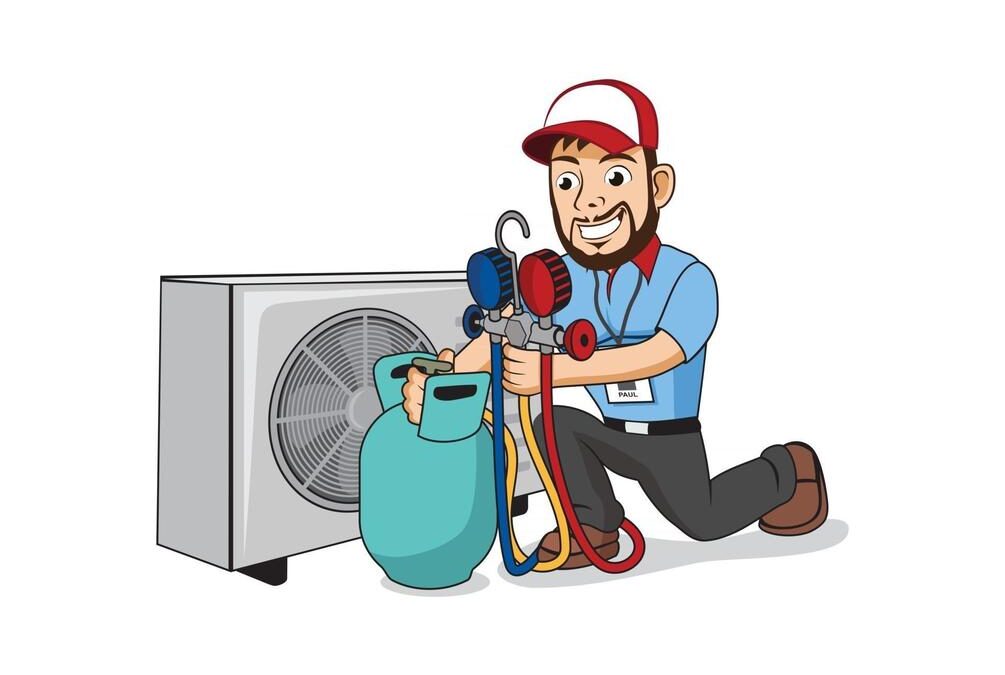You’re sweating. The temperature is steadily climbing, but why? In the hustle and bustle of everyday life, maybe you forgot to take a moment to consider your home’s most valuable player – or appliance – your air conditioning (AC) unit.
Overworked and under-serviced, your air conditioner stopped working. Heating, ventilation, and air conditioning system (HVAC) issues need to be addressed quickly to prevent extreme temperature changes in the home, and to minimize the risk of flooding. The good news is that some of the most common AC issues can be fixed or prevented in just a few minutes.
5 MOST COMMON AIR CONDITIONING PROBLEMS
1. AC Not Working at All
When your air conditioning unit unexpectedly shuts down with no warning (no air blowing, motor not running, etc.) there are a few things you can do to troubleshoot and/or fix the problem before you need to call in an HVAC expert.
First, check your thermostat batteries. An easy-to-forget household chore is routinely changing device batteries, and thermostats are frequently forgotten about thanks to their “set it and forget it” functionality. If the batteries are dead, replace them. Then, confirm that it is set to “cooling” and the temperature you desire. If all else fails, you may need to reset the AC’s circuit breaker.
2. Your AC is Blowing Warm or Hot Air
There are few things more uncomfortable than an air conditioner that dispenses lukewarm air. Before doing anything, verify that your thermostat settings weren’t accidentally switched. If your settings are correct – the first thing you should do is change your air filter. Old, clogged air filters are often to blame for AC problems like frozen coils.
If the filter isn’t the problem; you could be low on refrigerant. Test this by feeling the larger of the two copper lines that go into the unit’s condenser. If it is moist and cold to the touch – your levels are good. If it’s lacking in one or both of these qualities, refrigerant is low. Refilling or repairing the refrigerant reservoir is a job for a professional. Call in an HVAC technician to get the job done.
3. You’ve Got a Leaky unit
Air conditioning units are expected to involve a certain amount of fluid and condensate, but excessive leaking is indicative of several different problems with varied solutions. The condensate line can easily become clogged. Getting it unclogged is rudimentary enough for a do-it-yourself (DIY) fix, but make sure you follow the manufacturer’s instructions.
This is a common problem for property managers in multi-family complexes. Lines and pipes get clogged with mold or debris, and the drain line can back up and flood the home especially if the drip pan is cracked. If you can’t find your AC’s manual, or if pieces of the unit are broken instead of clogged, it’s best to call a vetted, licensed maintenance professional who can get it fixed before flood damage becomes your next big expense.
4. Uneven Temperature Distribution
Are some parts of your home significantly colder or warmer than others? Don’t worry it’s not a ghost. The problem could be an unbalanced air system. Depending on room size, air vent placement, windows, and even external temperature some areas of your home won’t get as much attention from the AC unit.
Make sure larger windows are covered with sun-blocking curtains or blinds. From here, you can check the insulation of each room or install dampers to balance your system and redistribute some of the air flow to keep each room equally cool.
5. Your AC is Loud
You should be able to feel that your AC is working, but you shouldn’t have to hear it. If your AC sounds like it’s struggling to keep you cool – it probably is struggling. Failing air conditioners tend to make different noises that are difficult for a novice to identify or diagnose. Screeching and squealing could mean there’s a faulty belt. Rattling sounds may be representative of problems with the fans, motor, or compressors.
Beyond checking your thermostat, clearing debris from around your outdoor unit, and changing the filters, suspect noises are best corrected by a professional. Of course you might get lucky. Loose air filters have been known to rattle when the blowers come on.


My AC is blowing hot air can you help me???
Sure when you have a few minutes give me a call 1 (888) 292-0874.
I went over this internet site and I think you have a lot of superb information, bookmarked (:.
Awesome and please make sure to tell your friends to stop by if they are having issues with their system..
My ac is blowing warm air. I checked for clogged line and the filter. I turned off and on, still warm air
Is the outside unit turning on?
Air conditioner freezing up
Have you checked your air filter??
Ac clicks on then shuts off
Which part of the system??